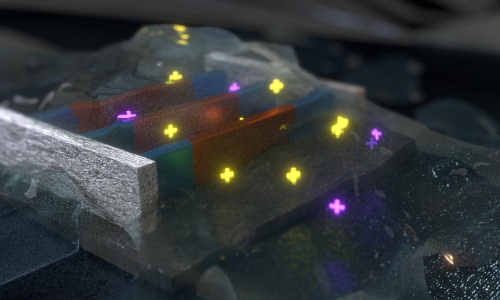Diagnosing a heart attack can require multiple tests using expensive equipment. But not everyone has access to such techniques, especially in remote or low-income areas. Now scientists have developed a simple, thermometer-like device that could help doctors diagnose heart attacks with minimal materials and cost. The report on their approach appears in the ACS journal Analytical Chemistry.
A simple, thermometer-like device could make diagnosing heart attacks easier in remote or low-income locations. Photo Credit: American Chemical Society
Sangmin Jeon and colleagues note that one way to tell whether someone has had a heart attack involves measuring the level of a protein called troponin in the person’s blood. The protein’s concentration rises when blood is cut off from the heart, and the muscle is damaged. Today, detecting troponin requires bulky, expensive instruments and is often not practical for point-of-care use or in low-income areas. Yet three-quarters of the deaths related to cardiovascular disease occur in low- and middle-income countries. Early diagnosis could help curb these numbers, so Jeon’s team set out to make a sensitive, more accessible test.
Inspired by the simplicity of alcohol and mercury thermometers, the researchers created a similarly straightforward way to detect troponin. It involves a few easy steps, a glass vial, specialized nanoparticles, a drop of ink and a skinny tube. When human serum with troponin — even at a minute concentration — is mixed with the nanoparticles and put in the vial, the ink climbs up a protruding tube and can be read with the naked eye, just like a thermometer.
Story Source:
The above story is based on materials provided by American Chemical Society.






